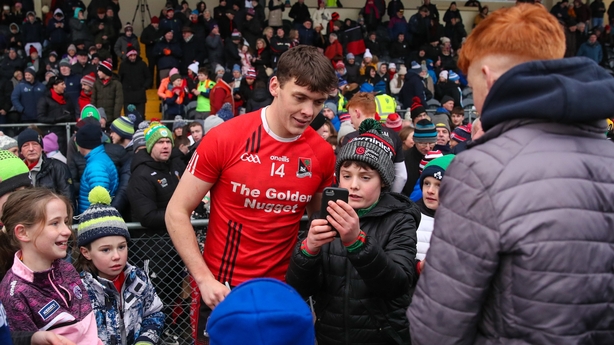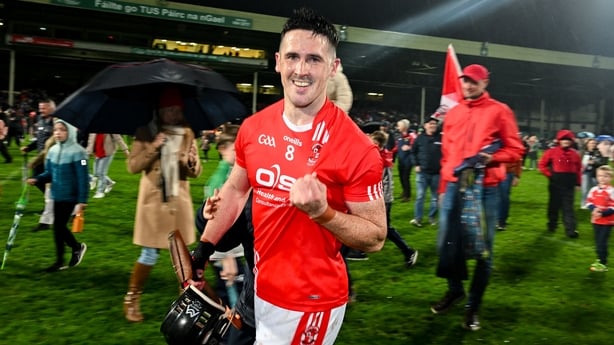The GAA split-season has solved one problem, but exacerbated another – the separation between inter-county squads and clubs – according to former Dublin footballer Dr Noel McCaffrey.
McCaffrey, the 1988 All-Star centre-back, expressed his concerns over the current state of play in the GAA in a recent article in the Irish Times and elaborated further on those issues on RTÉ’s Saturday Sport, as well as offering up a solution to the issue of inter-county players having such limited game time with their clubs.
Acknowledging the fact the split-season has addressed the contentious issue of certainty regarding the playing calendar for club players, McCaffrey argues it has taken another to new levels.
“The reality is now that inter-county players hardly ever play with their clubs except in the now-shortened club aspect of the split season, which is now down to four months,” he told listeners.
“In Dublin, and probably many other counties, the vast majority of clubs don’t have county players.
“A Dublin club will play on average four championship games. We can’t surely accept that inter-county players are playing four games with their club. I would argue it is a complete betrayal of what the GAA should be about.”
McCaffrey’s proposed alternative calendar breaks the season into four blocks.
The first would be the league, where the football and hurling national leagues are played on alternate weekends, with club football league games played on the same weekends as county hurling and vice versa for club hurling games.
After the league finals, there is a four-week block for club championships, followed by the inter-county championship over 13 weeks where inter-county players are exempt from club championships which continue parallel, with the final block the conclusion of the club championships over six weeks.
McCaffrey, whose daughter Sarah and son Jack have multiple All-Ireland medals between them, believes it is imperative for elite players to remain involved with their clubs.
Firstly, there is the element of fairness where clubs are frequently “without the very players that separate them from their opposition”.
“What is so, so special about the GAA, should be, is that David Clifford plays with Kerry one week, and next week he’s with playing his friends, in front of his family and neighbours, and the following week he is back in with Kerry,” he said.

“That is an extraordinarily unique aspect of the GAA. We are not celebrating that, we are stamping it out.
“We have values that are rooted in the community. We have values that supposedly mean our heroes are in the local park on a regular basis, not just four times a year.”
The third argument for greater involvement of inter-county players at club level is tied into player welfare.
“Potentially unhealthy,” is McCaffrey’s description of the all-consuming inter-county bubble, where big-picture perspective can easily be lost.
McCaffrey said he has expressed his concerns to three GAA presidents and claimed that former director general Páraic Duffy suggested that he was looking “for a national solution to a Dublin problem”, something he rejects strongly.
“Even if that were true, and I don’t believe it to be, the purpose of the GAA leadership is to protect all players in all counties,” he argued.
The only solution McCaffrey can see is whereby the association brings in a rule stating that players are only eligible for inter-county squads by being “active” club players, suggesting “at least” 12 competitive club games per year and taking the power away from inter-county managers.
“I would view it in terms of the driver’s licence model,” he said. “Nobody is compelled to get a driver’s licence, but if you want to drive a car, you have to have one.
“To me, the driver’s licence is playing with your club and driving the car is playing with your county.

“You don’t have to play with your club, but my view is that if you want to be eligible to be on a county squad, you should be compelled by rule, to play with your club.”
McCaffrey gave short shrift to the notion that increased club commitments could have a negative impact on player welfare for elite players.
“It’s an interesting argument, but it’s flawed in my view because if they weren’t playing in a club match on a Sunday, what would they be doing?
“They would be playing an intensively competitive A v B match at county level. The argument it would contribute to burnout or increase injury risk is nonsense in my view.”
